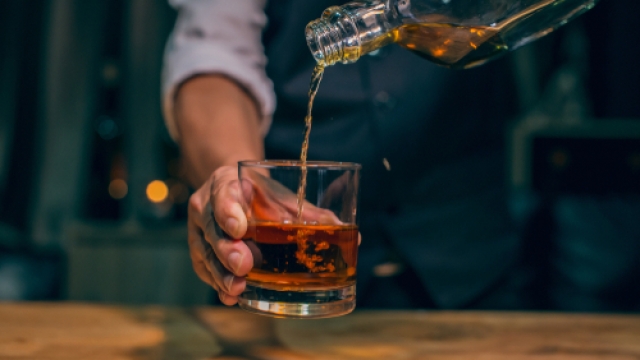The third Saturday in May marks a momentous occasion for whiskey enthusiasts and aficionados around the world. It's World Whiskey Day, a time to raise our glasses and toast to the exquisite amber libation that has been tantalizing taste buds for centuries. So sit back, relax, and maybe pour yourself a glass as we explore the fascinating history of whiskey.
Spirited roots
Whiskey, derived from the Irish word "uisce beatha" meaning "water of life," has a history as rich and sophisticated as its flavor. While the Babylonians, Greeks and Egyptians all dabbled in the alchemical process of turning grains into spirits, the origins of whiskey can be traced back to the Medieval monks of Ireland and Scotland.
Seeking comfort and spiritual fulfillment during the Middle Ages, these resourceful men began experimenting with the art of distillation to create medicinal concoctions. Little did they know their dedicated pursuits would lead to a global infatuation with this succulent elixir.
From monks to masses
As centuries unfolded, whiskey-making techniques were refined, and the spirit's popularity spread far and wide. Irish whiskey has garnered international acclaim with its light and fruity aroma and evident notes of the cereal grain from which it is made. Meanwhile, Scotland's iconic Scotch whiskey has captured the characters of its rugged landscapes, with smoky and malty flavors that shock the palate.
While one can assume that beer was among the first alcoholic beverages produced by early American settlements, they too began forging a new whiskey legacy. Eager to replicate the spirits of their homelands, colonists turned to corn and rye to create the first American whiskeys.
Through the years, it developed into complex, distinctively American bourbons, ryes, and Tennessee whiskeys. Bourbon emerged as the pride of the South, crafted with a minimum of 51% corn and aged in charred oak barrels. In fact, bourbon is so American that in 1964 Congress designated it as "a distinctive product of the U.S.A."
SEE MORE: The hidden Black history behind how whiskey was created
A toast to innovation
As whiskey production became more refined, new techniques emerged. The maturation process evolved to incorporate the use of various barrels, from sherry and port casks to rum and wine barrels. These subtle, unique changes lent all new flavors and complexities to the diversity of the final product.
At the turn of the 20th century, America witnessed an entirely new period of economic challenges in the industry and, eventually, prohibition. But even with alcohol being banned in the U.S. from 1920 to 1933, Americans found cunning ways to obtain these sought after delicacies. From hip flasks and hollowed canes to back room speakeasies, the stream of whiskey never stopped flowing.
True to its resilient spirit, whiskey persevered the era, and then came the boom of craft distilleries. With passionate artisans continuing to develop the craft, the boundaries of tradition expanded to create all new innovative blends and flavors.
Cheers to me, cheers to you, live long and prosper, as whiskey will too
Today, on World Whiskey Day, let us celebrate the versatile libation that has stood the test of time. Whether you prefer an iconic old fashioned, a classical Manhattan, or a peaty Scotch on the rocks, there is a whiskey for everyone — as long as they're of age.
Gather your friends, raise your glasses, and toast to the countless distillers, blenders, bartenders and all who cherish this beloved spirit. Cheers!
Trending stories at Scrippsnews.com




